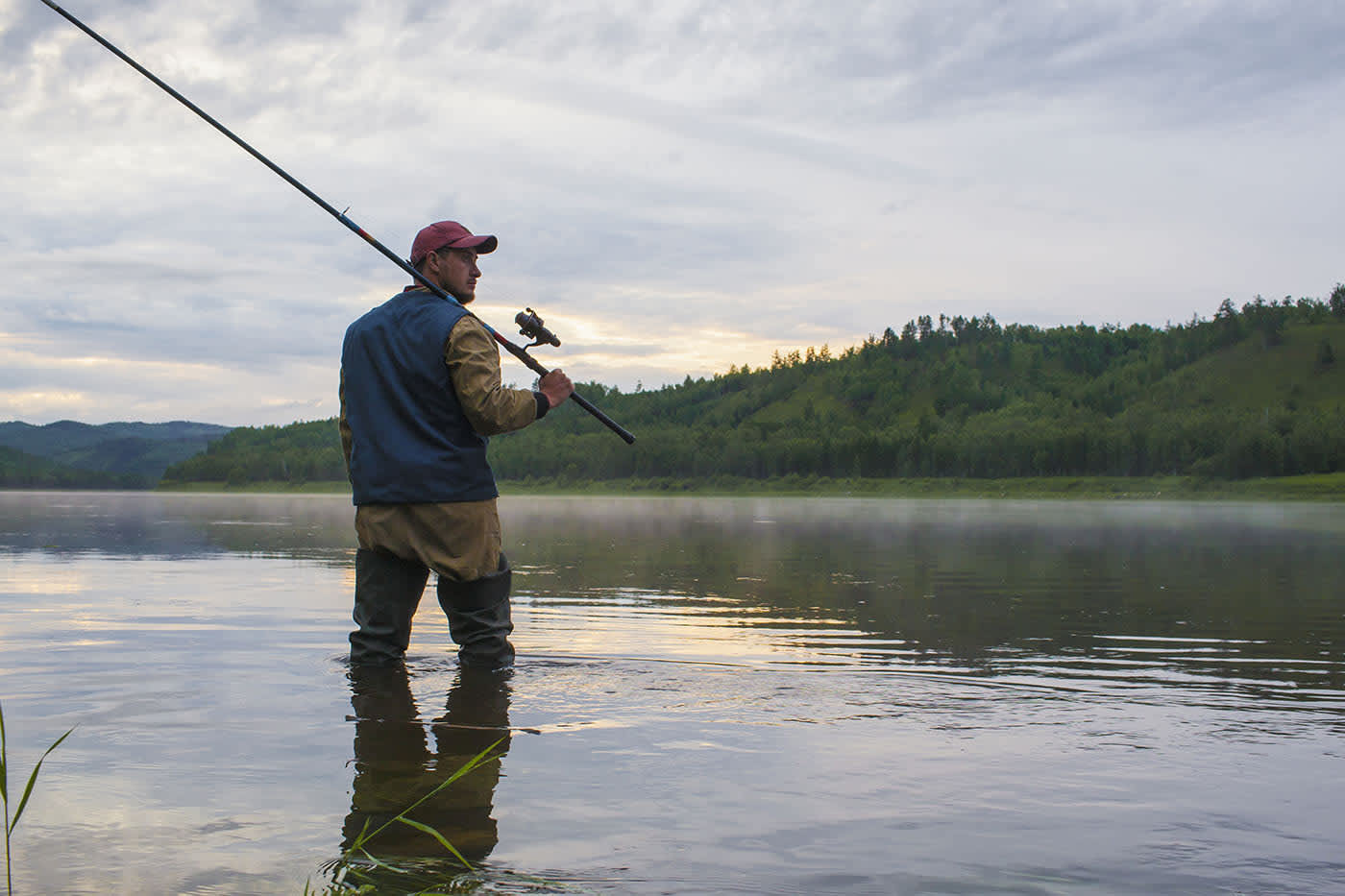
Fish and Game Warden: Career Guide
Are you ready to find a school that's aligned with your interests?
Fish and game wardens or conservation officers are peace officers who are commissioned in the state in which they perform their job duties. They ensure that applicable Fish and Wildlife Codes are obeyed and enforce state fishing, boating, and hunting laws and any federal laws that pertain to these activities. Fish and game wardens who gain experience and engage in continuing education may find advancement opportunities as a Field Training Officer (FTO) or in administration. According to the Bureau of Labor Statistics (BLS), the states with the most jobs for fish and game wardens are Texas, New York, Georgia, California, and North Carolina. Metropolitan areas that lead the list with the most employment opportunities include Virginia Beach, Virginia; Atlanta, Georgia; and Baltimore, Maryland.
Career Description, Duties, and Common Tasks
Fish and game wardens protect the nation's wildlife from such illegal activity as poaching and trapping and assist visitors at federal, state, and local parks. These highly trained officers keep a close watch on fish and wildlife, looking for changes, such as pollution, to their environment. Fish and game wardens investigate criminal behavior related to fish and wildlife, write reports, make arrests, gather evidence, interview suspects and witnesses, and may be called to testify in court. They also assist other law enforcement groups when wildlife - such as cougars, bears, or coyotes - wander into residential areas. Fish and game wardens may also help during search and rescue operations.
Steps for Becoming a Fish and Game Warden
The minimum age requirement for fish and game wardens is either 18 or 21 years, depending on the state. Successful candidates must have a bachelor's degree, but some states will waive this education requirement if the applicant has a two year associate's degree in addition to law enforcement experience or full-time fish and/or wildlife experience. As there are usually more applicants for fish and game warden positions than there are job openings, a four-year degree can give an applicant an edge over other applicants. Once an individual is selected to become a fish and game warden, he or she undergoes further study at a training academy for approximately three to 12 months. Contact your state's Department of Fish and Game for information on local requirements and opportunities. If you would like to become a fish and game warden, you should expect steps similar to the following:
- Acquire the education and/or experience necessary for the position in which you are interested.
- Find and apply for an open fish and game warden position.
- Submit to a background check and fingerprinting.
- Pass a polygraph examination.
- Be drug tested.
- Be interviewed for the position.
- Get hired as a fish and game warden.
- Receive training on the job once hired.
Fish and Game Warden Job Training
Once an individual is selected to become a fish and game warden, he or she undergoes further study at a training academy for approximately three to 12 months. Individuals who earn a position as a fish and game warden with the federal government must complete a 20-week training program at the Federal Law Enforcement Agency in Glynco, Georgia; trainees spend the final two weeks in West Virginia. Training covers both wildlife law enforcement and criminal investigations, including such subjects as identification of wildlife and the proper use of firearms. Following successful completion of the training academy, fish and game wardens must shadow Field Training Officers (FTO) for 10 weeks to gain hands-on experience under the watchful eye of a seasoned fish and game warden before moving to their assigned location.
Other Helpful Skills and Experience
Fish and game wardens must be in good physical shape, must familiarize themselves with the outdoors and the laws contained in the Fish and Wildlife Code, and must study law enforcement policy and procedures. Previous experience working with wildlife, either in a paid or volunteer position, may enhance employment opportunities. Knowing how to drive a boat, a small airplane, or a tractor and understanding how to make basic repairs to motor vehicles are also beneficial.
Possible Job Titles for This Career
- Conservation Officer
- Refuge Officer
- Wildlife Control Agent
- Wildlife Enforcement Officer
- Wildlife Officer
Fish and Game Warden Salary and Job Outlook
The BLS reports that fish and game wardens earned an average annual salary of $57,710 as of 2018.1 The top 10% earned an average annual salary of $80,140.1 There were approximately 6,040 fish and game wardens working in the US in 2018, with the majority (5,260) employed in state government.1
Related Careers
Interested in other law enforcement careers?
- Conservation Officer
- Criminal Investigator
- FBI Agent
- Fire Investigator
- First-Line Supervisor of Correctional Officers
- Homicide Detective
- Narcotics Officer
- Police Officer
- United States Park Police
- US Marshal
- Victims Advocate
- Crime Scene Investigator
Frequently Asked Questions
What is the work atmosphere like for fish and game wardens?
What kind of work schedule do fish and game wardens work?
How long does the hiring process generally take?
Are there any risks with the job?
Are there any continuing requirements for working with the US Fish and Wildlife Service?
Additional Resources
- Association of Federal Wildlife Officers: A resource for wildlife officers, providing both educational and networking opportunities for those in the industry.
- US Fish and Wildlife Service: The US Fish and Wildlife Service's official website.
References:
1. Bureau of Labor Statistics Occupational Employment and Wages May 2018, Fish and Game Wardens: https://www.bls.gov/oes/current/oes333031.htm
Latest Posts
Take the next step toward your future.
Discover programs you’re interested in and take charge of your education.